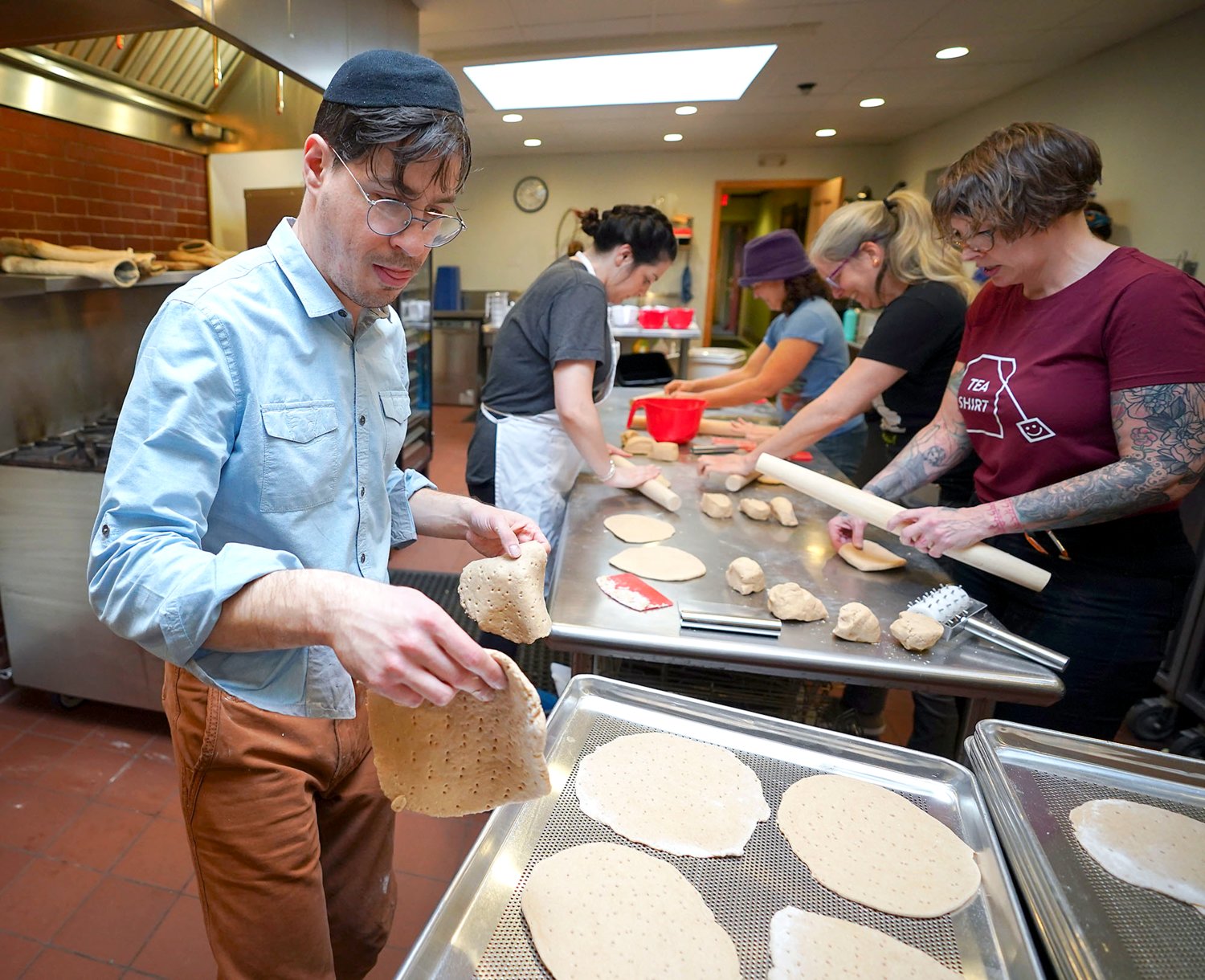Mitzvah Matzos reconnects Jewish ritual food and social action
The Pesach seder plate is arranged to remember Jewish history, with much of the food serving a deeply symbolic purpose. Matzah, in particular, symbolizes the unleavened bread that Jews ate while fleeing Egyptian slavery. Different variations of matzah developed for Ashkenazi, Sephardic and Mizrahi cultures – the latter two tend to be thicker and softer while remaining unleavened. Before mass-produced matzah became widely popularized, Jewish people and their communities would bake it themselves. It is called the “bread of affliction,” the bread of oppression and hardship; it serves as a symbol of the trials that the Israelites endured and the efforts to carry on in the face of suffering.
For a ritual food packed with cultural and spiritual significance, it has raised some eyebrows that the largest matzah manufacturing company, Manischewitz, is owned by private investment firm Bain Capital. This was unsettling to Barry Dolinger, rabbi at Congregation Beth Sholom in Providence. Wanting to fight the corporatization of matzah and redirect the impact of the Jewish ritual food object to fight for the freedom it has always stood for, Rabbi Dolinger and his wife, Naomi Baine, created Mitzvah Matzos.
Mitzvah Matzos is a nonprofit that aims to educate the community about the modern day horrors of human trafficking, and to send all profits from its handmade matzah sales to “organizations with established track records in fighting human trafficking and helping survivors find their paths to independence and freedom,” as their mission states online. Co-founder Baine knows a thing or two about providing matzah for a community: her great-great-great-grandfather founded the country’s first matzah factory, Horowitz-Margareten, in 1884, to meet the needs of his New York City Jewish neighbors, Baine said.
Frustrated with matzah being framed as a tool for corporate profit, Rabbi Dolinger and Baine started making their own batches of the unleavened bread with friends. According to Rabbi Dolinger, this action reconnected them to the matzah; he says they wanted to close the gap between ritual and social action. With crowdfunding help from the Rhode Island community and from Glean, an incubator directed by Rabbi Elan Babchuck of Providence, whose purpose is to mentor and fund spiritual entrepreneurs, they founded Mitzvah Matzos to provide aid for people who are experiencing modern day slavery similar the way the Jews once suffered.
Each year, Mitzvah Matzos chooses different organizations to benefit from its profits. This Passover season, matzah sales are helping Nomi Network, whose mission is to “end human trafficking by creating pathways to safe employment, empowering women and girls to break cycles of slavery in their families and communities.”
Donations are also benefiting St. Mary’s Home for Children’s STAAR (Supporting Teens and Adults at Risk) Program, which provides support services to youth and families at risk for or impacted by sexual exploitation.
Customers can purchase packs of prepared soft matzah or a 5-pound bag of shmurah flour to make matzah for themselves. Once purchased, the product can be shipped to pick up at locations in various cities. Pickup will occur from March 21-26, just in time for Pesach. Visit the website at mitzvahmatzos.org for more information.
HANNAH ALTMAN (haltman@jewishallianceri.org) is the content producer for the Jewish Alliance of Greater Rhode Island. She also writes for Jewish Rhode Island.








